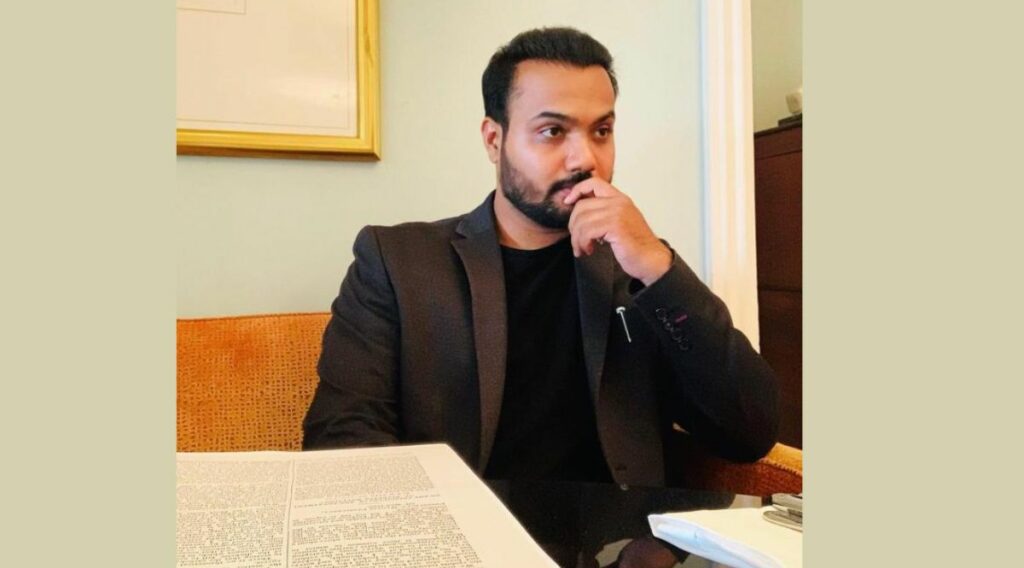Indian researcher Abhinav V Pathare’s article offers solutions to improve doctors’ research paper reading skills, promoting evidence-based medicine and better patient care.
New Delhi (India), June 30: Abhinav V Pathare, an Indian public health and community medicine researcher, has recently published an enlightening research article addressing a critical medical issue. The article “Medical Interventions and Their Poor Scientific Backup: A Threat to Evidence-Based Medicine” delves into doctors’ challenges in effectively engaging with published medical literature and proposes solutions to bridge this gap.
Abhinav’s research article emphasises the significance of enhancing doctors’ reading skills for research papers. It points out that numerous doctors tend to depend on textbooks and personal connections for clinical information instead of utilising the valuable insights accessible through research papers.
According to Abhinav’s research article, relying on textbooks and personal contacts for information may only sometimes provide the most up-to-date or scientifically supported knowledge. This can result in outdated treatment practices and limited access to evidence-based medicine. Abhinav supports this argument with empirical evidence.
Abhinav’s article emphasises the need for specialised training and education in research paper reading skills to empower doctors to critically evaluate and comprehend the latest research findings. By sharpening these skills, doctors can make more informed decisions based on the best available evidence, ultimately enhancing patient safety and advancing public health.
Recognising the complexities of research papers, Abhinav suggests that authors adopt a more straightforward language and employ accessible methods such as plain language summaries, infographics, visual abstracts, and video abstracts. These approaches aim to simplify the presentation of research findings, making them more understandable and applicable to clinical practice.
The article also highlights the importance of collaboration among interdisciplinary professionals, including researchers, doctors, allied health professionals, educators, policymakers, syllabus designers, and decision-makers. This collaborative effort is crucial to promote evidence-based medicine, implement effective training programs, and create a shared vision for improving patient care.
Abhinav’s thought-provoking article opens new avenues for dialogue and collaboration within the medical community. It calls for a collective effort to enhance research paper reading skills among doctors and encourages the adoption of more transparent language and innovative communication methods in the medical literature.
Abhinav’s article has been published in the International Journal of Advanced Research in Medicine (2023; Volume 5; Part B of Issue 2; Page 117-120). For further information or to read Abhinav V Pathare’s full research article, please visit: https://www.medicinepaper.net/article/488/5-2-7-494.pdf
About Abhinav Vitthalrao Pathare:
Meet Abhinav, a researcher from India specialising in public health and community medicine. He earned his Master of Science in Applied Public Health from the University of Central Lancashire, England, in 2020 with a merit classification. Currently, Abhinav is a Principal Investigator at Public Health India (PHI), an Indian research organisation.
Abhinav has written several scientific articles on topics related to public health and community medicine. These include revisiting public health dietary guidelines, exploring the low-carbohydrate high-fat approach, addressing issues of obesity and non-alcoholic fatty liver disease, promoting health through the healthy setting approach, encouraging health-promoting universities, and discussing sports nutrition. He aims to improve public health outcomes through well-informed programs, policies, and strategies.
To get in touch with Abhinav, you can contact him at +91 9422835840 or email him at abhinavpathare16@gmail.com. Abhinav is also available on ResearchGate, Google Scholar, LinkedIn, Instagram, and Facebook.


